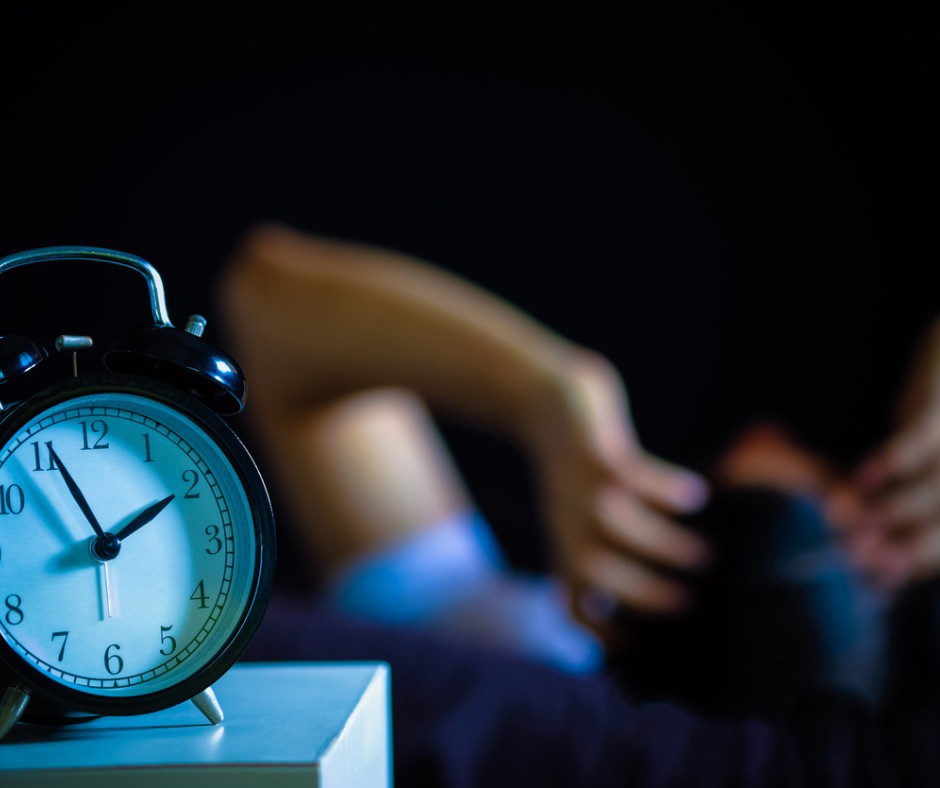Sleep, Glorious Sleep
December 22, 2020

Resolving to Get the Rest You Need This Year
Happy New Year! Have you made any resolutions yet? As the calendar turns to a fresh page, many of us make a fresh resolve to eat better, do better and be better. But have you ever made a resolution to sleep better? It’s one you may want to consider.
“Many people don’t connect the dots between the quality of their sleep and the quality of their overall health,” says Family Medicine specialist Jennifer James, MD. “Most adults need at least seven to eight hours of sleep each night to maintain good health.”
Unfortunately, a number of us aren’t quite measuring up. According to the Centers for Disease Control and Prevention (CDC), a third of U.S. adults say they typically get less than the recommended amount of sleep. And a lack of proper sleep doesn’t just make you feel groggy the next morning.
“Besides the feeling of being tired, poor sleeping habits can increase your risk for high blood pressure, elevated stress levels, weight gain, depression, loss of motor skills and poor heart health, and can put you or others in danger when operating motor vehicles or other machinery,” says Dr. James.
There are a number of things you can do to improve your sleep habits – without having to count sheep. The National Sleep Foundation recommends the following tips for better sleep:
- Stick to a regular sleep schedule, even on the weekends
- Find a relaxing, nightly bedtime ritual away from bright light, and build time into your schedule to “wind down” before bed
- Exercise daily
- Create a pro-sleep environment, with a cool air temperature, and minus the noise, distraction and light that can disrupt your sleep
- Make sure your mattress and pillows are comfortable and supportive (If you’ve had your mattress longer than 10 years, it might be a good idea to invest in a new one)
- Avoid alcohol, cigarettes, caffeine and heavy meals in the evening
You might be asking, “What about naps?” A good approach to naps is to ensure they are in the afternoon and no longer than 20 minutes.
“If you’ve tried different tactics and are still having trouble sleeping, you may be suffering from a sleep disorder,” says Dr. James. “Left untreated, sleep disorders can be very damaging to a person’s overall health.”
The following four major sleep disorders are common in the U.S., according to the CDC:
- Insomnia includes the inability to initiate or maintain sleep, as well as early morning awakening and excessive sleepiness throughout the day.
- Narcolepsy is most often characterized by excessive daytime sleepiness combined with sudden muscle weakness. This muscle weakness often happens in “attacks” triggered by strong emotion or surprise, and can happen anytime, even during physical activity like exercise or simply driving your vehicle.
- Restless Leg Syndrome (RLS) most often manifests as an unpleasant feeling in the lower legs, often accompanied by aches and pains. Those who experience RLS typically have difficulty falling asleep, and may try to relieve their discomfort by walking or kicking their legs.
- Sleep Apnea includes excessive snoring that is periodically interrupted by gasping or snorting noises. Without treatment, sleep apnea can cause serious health issues. In fact, sleep apnea may be a cause of another underlying condition like congestive heart failure or an obstruction of the nasal passages.
“If you are experiencing any of the symptoms of a sleep disorder or are having difficulty maintaining good sleep habits in general, it’s important to contact your healthcare provider to determine the best treatment for you,” says Dr. James. “Sleep disorders can often be treated with prescription medications, behavioral interventions or, in the case of sleep apnea, continuous positive airway pressure (CPAP) devices. Over-the-counter medications do exist for sleep, but you should consult your doctor or pharmacist before taking them.”
For more about good sleep habits, visit sleepfoundation.org or cdc.gov/sleep.
